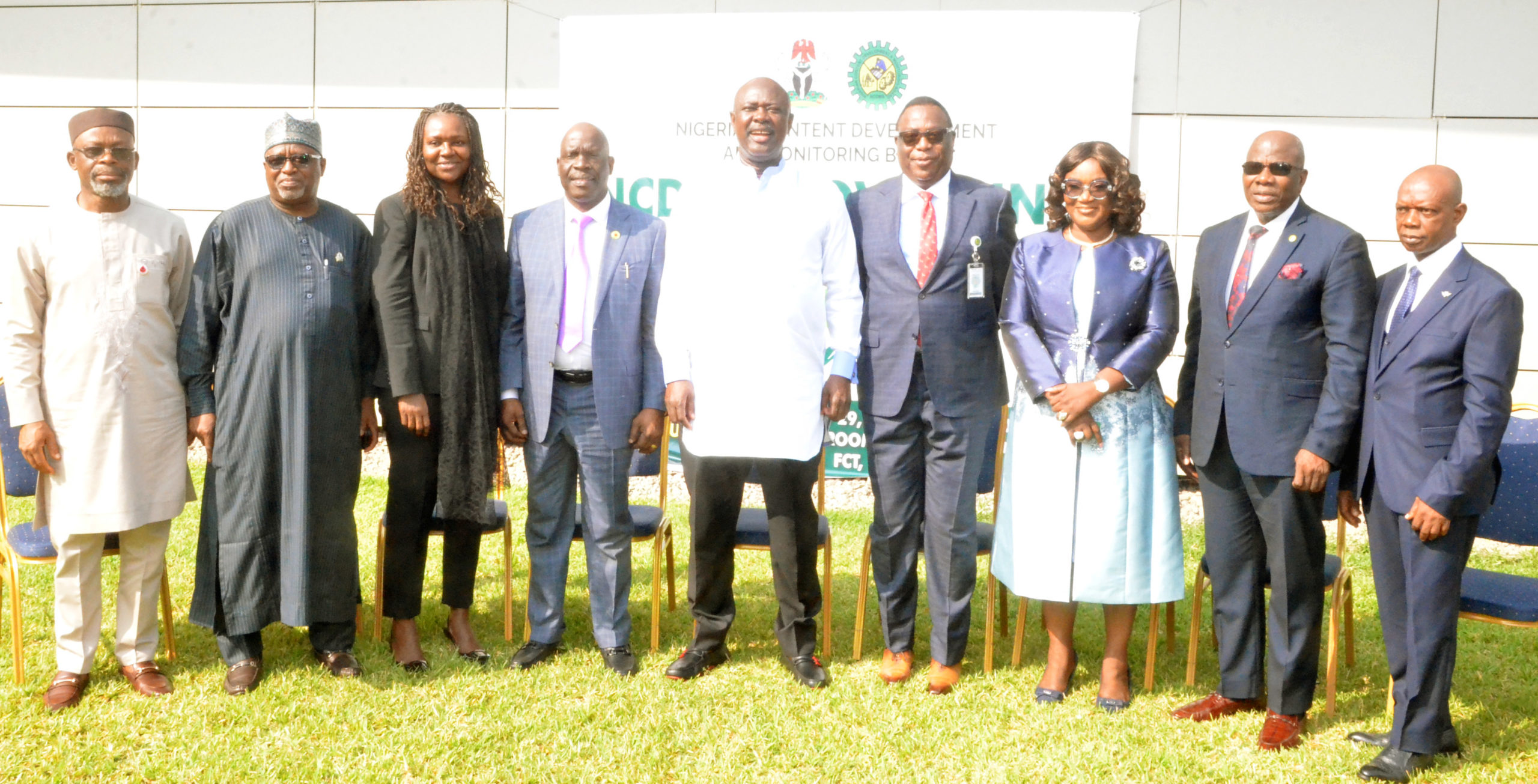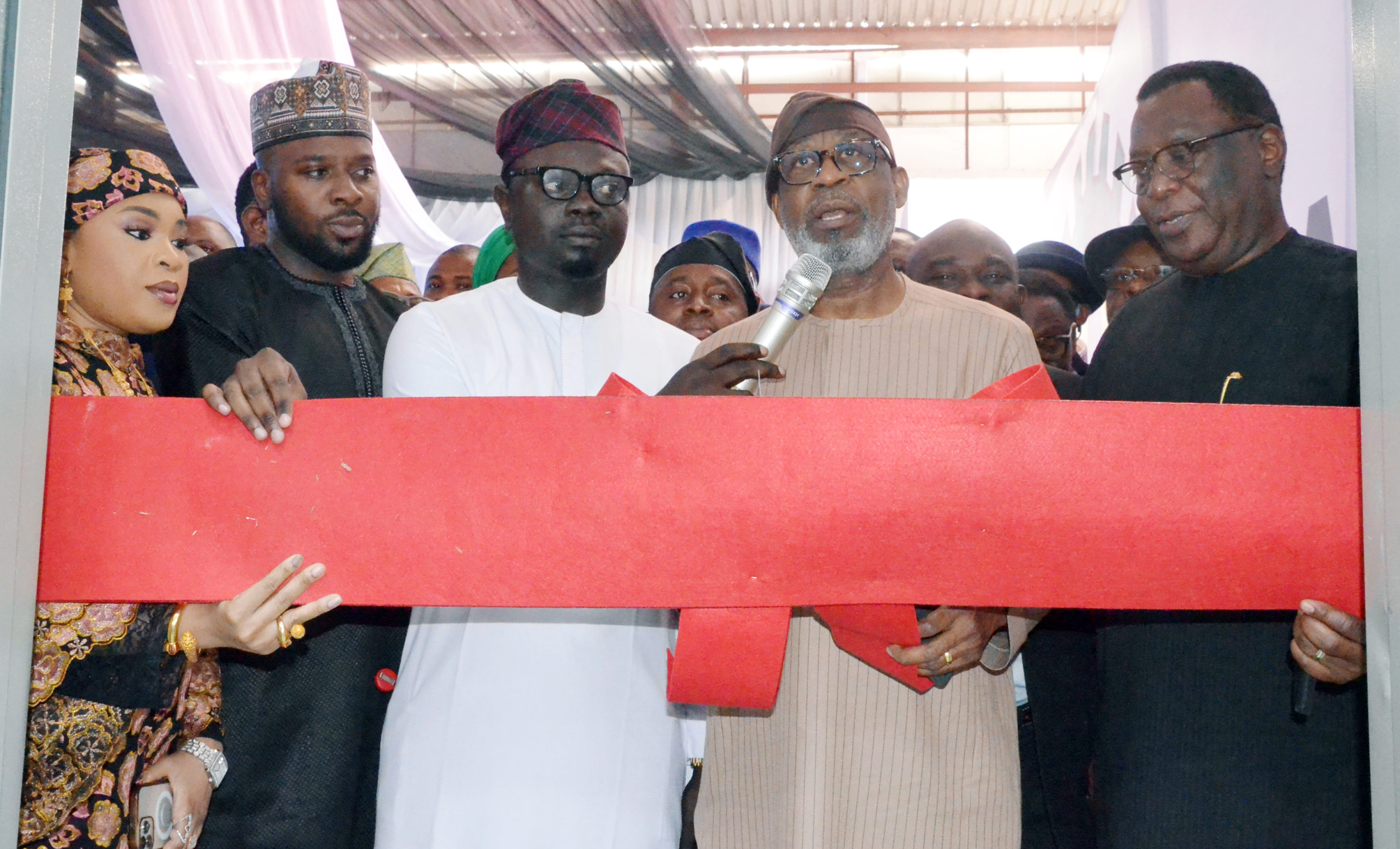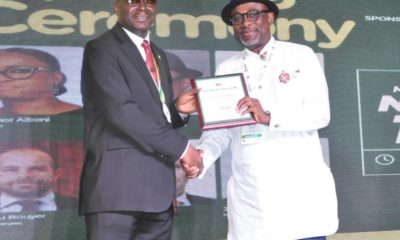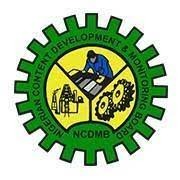Business
NCDMB Charges Indigenous Companies On Compliance

Mid-way into a 10-year Strategic Road Map for enhanced indigenous participation and utilisation of local assets in oil and gas operations, industry regulator Nigerian Content Development and Monitoring Board (NCDMB) has recorded a 54 per cent Nigerian content level in 2022.
Presenting a status report at the 11th Practical Nigerian Content Workshop organised by the Board and DMG Nigeria Events at Uyo, Akwa Ibom State, the Executive Secretary NCDMB, Engr Simbi Kesiye Wabote explained that the average of Nigerian Content performance in the last five years is 44 percent, which represents the 10-year period the Nigerian Content Strategic Roadmap has been implementing so far.
He indicated that the performance in 2022 is well above the 42 percentage target set by the Project Management Office (PMO), just like in 2021 when 42 percent was achieved, above the target of 38 percent.
He confirmed that the tracking of the performance is based on the Board’s monitoring and evaluation of Industry activities.
Strikingly, the technical capability development pillar of the Road Map stands out as a major highlight as fabrication and construction, hitherto under near-total dominance by foreign firms, had 99 per cent Nigerian content during the period under review.
He further disclosed that 77 out of 96 initiatives under the short- and medium-term categories of the Road Map had been completed in November 2022.
He stated that manpower in the oil and gas industry had reached 81 per cent Nigerian content as of November, while project management as of that month was 80 per cent.
Zeroing in on year 2022, the Executive Secretary revealed that “performance was largely driven by the contracts awarded under the [Nigerian Liquefied Natural Gas] Train 7 Project.” Low points in accomplishment were in procurement, engineering and services, with Nigerian Content as unimpressive as 34, 46, and 50 per cent respectively. These, he assured, would be sufficiently addressed.
Technical data, cited by Engr. Wabote showed the capture of 12 new indigenous operators in the upstream sector of the oil and gas industry, bringing the total to 97. In the service subsector, there were 1,303 new corporate entrants, raising the total to 9,532, while 22,512 individual registrations were recorded, bringing the total to more than 271,000.
The Executive Secretary informed stakeholders that the Board has commenced the process of “allocation of serviced plots to manufacturers [of equipment components, spares, and tools required in petroleum industry operations] to kick start operations within our NOGAPS [Nigerian Oil and Gas Parks] industrial parks at Emeyal 1, Bayelsa State, and Odukpani in Cross River State,” assuring that “Construction work is also ongoing at the other NOGAPS parks in Akwa Ibom, Imo, Delta and Ondo States with Edo as the newest addition to the list.”
Engr. Wabote expressed the Board’s displeasure at the activities of indigenous oil and gas companies, which seek to undermine its effectiveness after they had benefitted from strategic interventions in funding and capacity building programmes of the organisation. He advised them to turn a new leaf and ensure compliance with regulations or face the consequences.
He commended the Group Managing Director of the Nigerian National Petroleum Company (NNPC) Limited, Malam Mele Kyari, who had to fly in from Rabat straight to the Conference in Uyo, for his commitment to NCDMB’s local content drive.
In his own remarks the NNPC boss assured the nation that the effort to deepen the utilisation of gas to drive industrialisation and economic development was very much on course. While emphasising Nigeria’s interest in gas as energy transition fuel, he stated that “Gas provides the opportunity to power the global economy.”
Among several projects embarked upon by Government, he cited the multibillion dollar Nigeria-Morocco Trans Saharan Gas Pipeline, which had taken him to Morocco recently. Feedstock for the pipeline, he explained, would be from faraway Brass in Bayelsa State. He further assured, “We will complete the OB-3 [East-West pipeline, with a projected capacity of two billion standard cubic feet] pipeline.”
In a welcome address, the Governor of Akwa Ibom State, Mr. Udom Emmanuel, expressed the joy of the people of the State for the opportunity to host the PNC for a second time. Represented by the Deputy Governor, Mr. Moses Ekpo, he stated the desire of the State to be considered in plans for oil and gas producing states.
The PNC Conference continues on Wednesday, with paper presentations and panel discussions on the general theme of deepening Nigerian content.
Business
NANTA Champions Nigeria’s Tourism Revival With ₦742m Investment
The National Association of Nigeria Travel Agencies (NANTA) has disclosed an investment of ₦742 million over the past three years to position Nigeria as a premier tourism destination at the annual World Travel Market (WTM) in London.
Speaking in Lagos on Thursday, NANTA’s immediate past president, Mrs. Susan Akporiaye, revealed that the funds were used for exhibition pavilions, magazine publications, and logistical support for members attending the prestigious trade show.
“In three years, NANTA has spent ₦742,226,100 to deliberately put Nigeria on the global tourism map at the WTM. This was achieved with only skeletal support in 2022 and 2023,” Akporiaye said.
READ MORE: Adeleke Represents SW On Ad Hoc Committee on Nat’l Electrification Plan
According to Akporiaye, the association received minimal support in its early years of participation.
In 2022, La Campagne Tropicana Beach Resort and Air Peace contributed by placing advertisements on the Nigerian pavilion and in the association’s magazine. By 2023, Ibom Air joined the effort, supporting NANTA with adverts, while La Campagne Tropicana maintained its support.
The 2024 edition, however, marked a turning point. Akporiaye noted that for the first time, Ibom Air went beyond advertisements to co-exhibit, alongside Eko Hotels and Sabre Travel Network. Their contributions made Nigeria’s representation at WTM more robust and impactful.
“Sabre Travel Network also supported us, so we had their graphics, as well as Ibom Air’s, displayed on our stand. Their contributions made our 2024 participation very grand,” she added.
Akporiaye highlighted that 90% of the funds for WTM participation came directly from NANTA members, underscoring their commitment to Nigeria’s tourism development.
“This shows that we are true patriots, and we deserve national recognition for our efforts,” she said.
NANTA began attending the WTM in 2022 to fill the gap left by Nigeria’s absence from the event for over 10 years.
The association saw the need to promote the country’s tourism potential and create international business opportunities for its members.
“It’s been a wonderful and successful three years that NANTA has participated in WTM, filling the gap left by Nigeria’s absence for over 10 years. We are glad to have handed over the baton of Nigeria’s participation at WTM to the Nigerian government this year,” Akporiaye said.
Through its participation, NANTA has secured affiliations with international tourism boards, organized product training for members, and raised awareness about Nigeria as a destination.
These efforts have also led to partnerships with global airlines and travel boards, fostering significant growth for members’ businesses.
“Our participation at WTM has helped members’ businesses grow significantly. We have formed partnerships with airlines and travel boards worldwide.
“Our greatest achievement at WTM is drawing Nigeria’s attention back to the need to exhibit at the global travel market,” Akporiaye said.
The initiative has also inspired members to expand their horizons into global Meetings, Incentives, Conferences, and Exhibitions (MICE) events.
Business
CSR: Dangote Cement Fuels Education With Support Projects At Lagos Schools
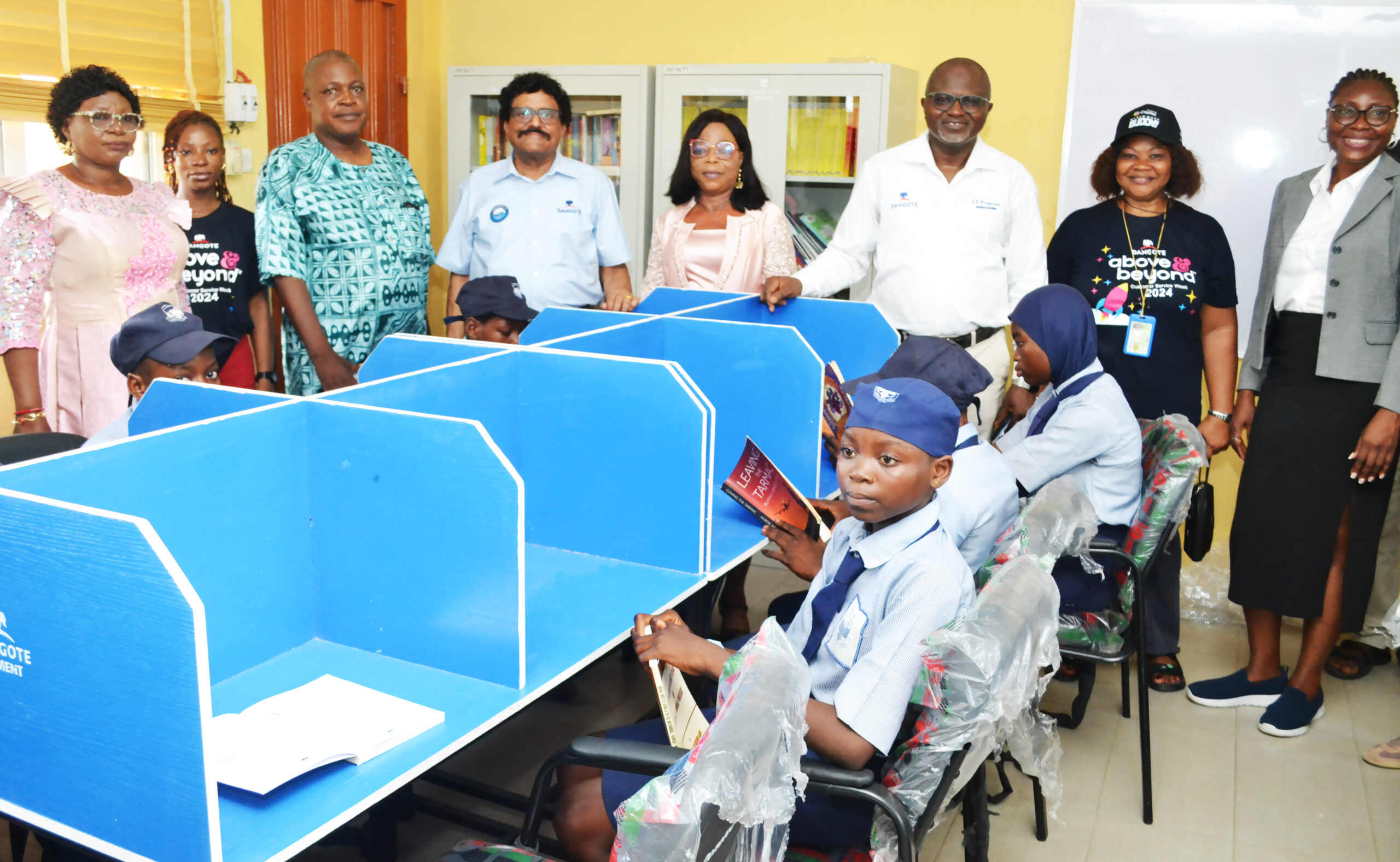
Dangote Cement Plc, a leading cement manufacturer, has donated multi-million Naira educational support projects to secondary schools in Lagos as part of its social investment initiatives.
The company in a statement explained that the move is aimed at complementing the government’s efforts in providing quality and sustainable education in the state.
It was gathered that the projects were commissioned and handed over to various schools in the Ikoyi-Obalende Local Council Development Area, align with the Sustainable Development Goals (SDGs) on education. These goals focus on ensuring inclusive, equitable, and quality education, as well as promoting lifelong learning opportunities for all.
The projects, warmly received by both teachers and students, include 100 dual school desks for Ilado Community Junior High School and Wahab Folawiyo Senior High School, alongside a refurbished and fully equipped Chemistry Laboratory at the Government Senior Secondary School, Ikoyi.
ALSO READ: Dangote Cement Ibese Fetes Host Communities’ Senior Citizens
Also donated were reading tables, chairs, and bookshelves for the library at Government Junior Secondary School, Ikoyi.
A celebration also took place at Falomo Junior High School and Ireti Senior Grammar School, both in Ikoyi, where the company donated 20 brand-new desktop computers to the ICT departments of the schools.
At the event at Government Junior College, Ikoyi, the Group Managing Director of Dangote Cement Plc, Arvind Pathak, explained that social investment is a key part of Dangote Cement’s operations.
He said the company is dedicated to giving back to society and supporting the sustainable development of local communities, especially in areas where it operates.
Pathak’s address was delivered by Wakeel Olayiwola, the Head of Social Performance at Dangote Cement Plc.
He said, “education holds a pivotal role in the development and empowerment of the youths in the country. As a cornerstone for societal advancement, it serves as a critical tool for personal growth, economic development, and national progress. An educated youth population not only fosters individual success but also contributes significantly to the nation’s overall wellbeing.
“At Dangote Cement, we believe that providing quality education to our youth is vital and should not be left solely as the government’s responsibility. Thus, we aim to partner with the government to enhance educational development in this regard.
“The projects we are handing over today are part of our 2024 Corporate Social Responsibility (CSR) programme for selected schools within the neighbourhood of Dangote Cement Plc’s Head Office in Ikoyi, Lagos. These projects were selected based on need assessments in collaboration with the schools.”
As a responsible corporate entity, Pathak noted that Dangote Cement’s commitment to societal wellbeing, with investments in four key areas: Education, Healthcare, Infrastructure, and Economic Empowerment programmes.
“This year, our plants in Ibese, Ogun State; Obajana, Kogi State; Gboko, Benue State; Okpella, Edo State; and our Pan-African operations have launched several social investment projects. These efforts contribute to the quality of life in our host communities and support sustainable national development,” he added.
Pathak thanked the Lagos State Government, the Tutor General/Permanent Secretary, and the school management teams for their collaboration in identifying the schools’ needs and ensuring the timely completion of the projects.
Dr. Idowu Olufunke Oyetola, Tutor General and Permanent Secretary of Education District 3, Lagos State Ministry of Education, who was represented by Bolaji Rotimi Ajayi, Director of School Administration, praised the long-standing partnership with Dangote Cement, noting that the schools selected for the donations were fortunate beneficiaries. “We hope for more collaborations that will positively impact education,” she added.
The principals of the recipient schools expressed their gratitude after the formal handover of the projects.
Odunlami Olubunmi, Principal of Ilado Community Junior High School, Ikoyi, thanked Dangote Cement for the new desks, stating that the donation would significantly improve the learning environment for the students, helping to prepare them for a brighter future.
Bamidele Ayotunde, Principal of the school with the refurbished laboratory, urged other businesses to follow Dangote Cement’s example in supporting local schools, pointing out the positive impact of the laboratory’s renovation on the school’s learning environment.
The Principal of Ireti Senior Grammar School, Ikoyi, whose school received the new desktop computers, described the donation as a positive development and expressed hope for more support in the future.
Pupils also shared their appreciation for the contributions. Abiola Jamaudeen, a lab prefect at Government Senior College, Ikoyi, promised that the laboratory would be used to its fullest potential and well-maintained.
Lawal Rumayzo Abdulsalam, a student at the school, said the new library equipment would foster better reading habits and create a more conducive environment for learning, ultimately preparing them for success. Some students even performed special songs to welcome the Dangote team to their schools.
Business
Adeleke Flaunts Local Content Records, Industrialisation Progress
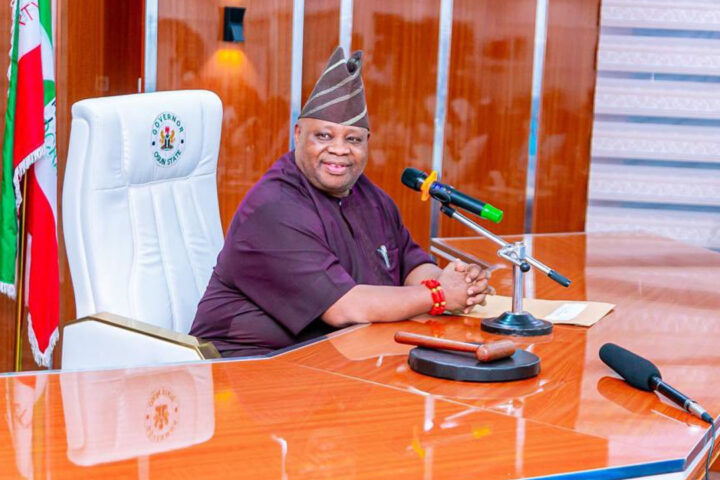
Osun State Governor, Senator Ademola Adeleke has celebrated the local content achievements of his administration, claiming it has transformed the state’s economy and strengthened local businesses.
The Governor, represented by his Deputy, Prince Kola Adewusi, made this declaration at the 2024 Trade Fair of the Osun State Chamber of Commerce and Industry held at the Trade Fair Complex, Osogbo.
This year’s fair is themed “Developing Osun Local Content Value Chain for Shared Prosperity”.
Gov Adeleke, reviewing his records on local content in the last two years, expressed pride to announce that his administration had set an unrivaled record in the promotion and commitment to local content development.
ALSO READ: Diri Celebrates Consummate Democrat, GEJ @ 67
According to Gov Adeleke, “our major infrastructural projects are being handled by local contractors. We are building up our indigenous companies to handle major jobs outside the state. Our local engineers are fully engaged in all facets of the construction processes. Our supply chain feeding the construction processes is also locally focussed and sourced.
“As local content is a tool for economic development, our multi billion naira infra plan has a focus beyond Osun money revolving within the Osun economy. We seek to stop capital flights, thereby ensuring a financially vibrant local economy that contributes to the fight against poverty and underdevelopment.
“Beyond a solvent grassroots economy, our policy ensures skill transfer. Local workers are empowered with requisite skills which they subsequently deploy as skilled service providers. We are building a pool of skilled citizens across all sectors.
“Additionally, our local content agenda is a strategy for employment creation. By adopting direct labour in many project executions, we provide jobs for the artisans and the unemployed. Osun is indeed a huge construction site with increasing job opportunities for the unemployed.
“Local content as a state strategy also drives our focus on infra growth and development. We are eager to bridge the infrastructure deficit to enhance trade and investment. We have recorded huge progress in that respect.
“Our administration is also removing possible bottlenecks in business operations in Osun state. The processing of Certificates of Occupancy is now within a 45-day window. This is billed to enhance business capacity to attract financial transactions and support within the business ecosystem.
“The era of multiple taxation is coming to an end as Osun state has now introduced a harmonized tax system. Our tax agency has become truly business friendly.
“To facilitate investment, we revive and strengthen the Osun State Investment Promotion Agency (OSIPA). The agency puts under one roof all regulatory and certification agencies of the Government.
“To accelerate the pace of industrialization, we revive the Free Trade Zone to provide over one million direct and indirect jobs for the people. We establish Markets with modern facilities, set up farm produce aggregation centres, and put life into moribund industries among others.
“The State Government recently hosted an Industrial Investment Summit. The event attracted local and international investors. While the current industrial policy is being vigorously implemented, we plan to review the policy to accommodate new realities occasioned by modern innovations and Artificial Intelligence.”
While restating his administration’s readiness to partner with the organized private sector, Gov Adeleke urged the business chamber to expand its scope, calling on the business leaders to reach out within and outside Nigeria for the development of businesses in Osun state.
“As the voice of Osun business, you are not a government agency. You represent the private sector. Your task is to expand your scope and mobilize businesses to grow as an umbrella body. I task you to interact with all sectors of the state economy. You have a duty to shake off bureaucratic burden and truly act like a private sector body”, the Governor charged the chamber.
The Commissioner for Commerce and Industry, Rev Bunmi Jenyo listed out several programmes and policies of the state government designed to support growth and development of businesses in Osun state, declaring that Osun is open for business.
According to the Commissioner, the recent industrial investment summit showcased the huge potentials of the state and expressed delight at the huge number of investors who showed up and expressed interest to tap into the investment potentials of Osun State.

